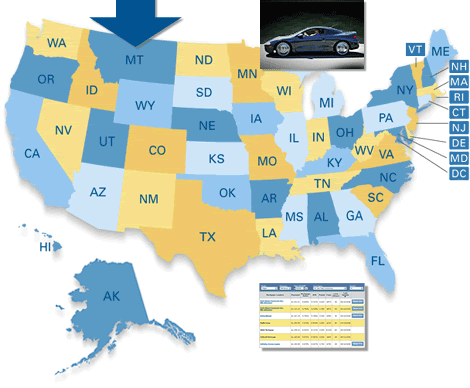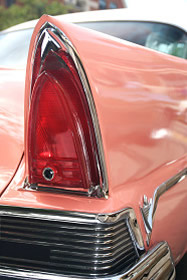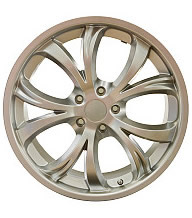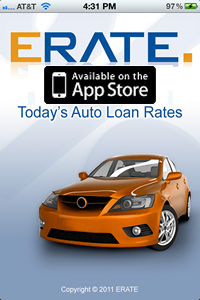Automobile Financing
Leasing a Car: Two Types of Leases - Closed & Open
by Amy Lillard
Looking to lease a car? Depending on your particular needs, you have two different leasing options to choose from.

Understanding the two types of leases prior to signing that contract is essential. Major differences exist between the two types of leases, and can result in you getting a good deal, or a raw deal.
Closed-End Lease
The most common consumer lease today is a closed-end lease. Also called “walk-away” leases, this lease allows you to return the vehicle at the end of the lease with no additional responsibilities, besides possible payment for damage or mileage.
Closed-end leases are based on the idea that you will drive less than an average of 12,000 miles a year, and that you won't drive in overly rough conditions. This means that the value of the car at the end of the lease, called the residual, can be predictable to car manufacturers and dealers. The company estimates this residual value before you lease.
If the car is worth less than the residual when you turn it in, the company takes a hit. You are not responsible, since you drove under the expectations the company set forth. You can turn in your car without any financial obligation.
Now, if you car is worth more than the residual at the time you're ready to turn in? You may want to reconsider. You'll have the option to purchase the car. You can often get a good deal, or you can sell it and make a profit.
Open-End Lease
Open-end leases also exist and are most often used in the case of commercial business lending. A company/employer will assume management and leasing of the car to its employees, not the leasing company. The employer takes all the financial risk. This works well for employers since the cost of the vehicles can be written-off or expensed.
Typical use of a car in these situations is much less predictable. Annual mileage restrictions are usually much larger than the 12,000 mile a year average because employees may need to use the car for business trips and more.
The problem with this lease? You are responsible for paying any difference between the residual and the actual market value at the end of the lease. This can result in a significant payment if the market value of your car has dropped, or you've needed to drive much more than expected.
Often the residual for an open-end lease is set much lower than for a closed-end lease. This means you have reduced risk for a payout at the end of the term, but it also means you probably will pay significantly higher monthly payments. Refinance at Today's Low Rates!
Learn more about other problems and opportunities presented with automobile purchasing and financing with our continuing series, including steps to buying new cars, buying used cars, financing options, types of loans, and more.
 A frequent contributor to ERATE® since 2006, Amy Lillard is a freelance writer specializing in turning complex information into useful tips and tricks for readers. For questions or topic suggestions, contact Amy at [email protected].
A frequent contributor to ERATE® since 2006, Amy Lillard is a freelance writer specializing in turning complex information into useful tips and tricks for readers. For questions or topic suggestions, contact Amy at [email protected].
Other related articles:
Automotive Loans: How Much Car Can You Afford?
Buying vs. Leasing Cars: A Comparison
Auto Loans Advice: New Cars & Used Cars
New and Used Auto Loan Rates
Choose Your State Below

Start by selecting your state

Automotive Loans: Trading in a Car
Automotive Loans: What Laws Protect Car Buyers?
Automotive Loans: Trade In or Sell a Car?
Automotive Loans: Is Zero Percent Financing Really Possible?
Automotive Loans: Determining a Down Payment
Automotive Loans: The Truth About "Add-Ons"
Automotive Loans: Top 5 Mistakes When Buying a Car
Automotive Loans: Shopping Online
Automotive Loans: Dealer Incentives to Buy
Automotive Loans: Car Buying Incentives
Automotive Loans: Should You Buy New or Used?
Automotive Loans: What to Know About Interest Rates
Automotive Loans: Negotiating a Loan with a Dealer
Automotive Loans: How Much Car Can You Afford?
Automotive Loans: Understanding Typical Loan Language
Automotive Loans: Types of Financing
Automotive Loans: Buying Vs Leasing
Automotive Loans: Applying for a Car Loan

Buying a Car: Standard and Extended Warranties
Car Buying: Financing Background and Steps
Leasing a Car: Two Types of Leases - Closed & Open
Buying a Used Car: Two Options
Buying a Car: 5 Steps to Find the Perfect Deal
Automobile Buying/Financing

5 Steps to Find the Perfect Car
Auto loan defaults to rise 7 percent in 2010
Auto Show Season Tips for Buyers
When is the Best Time to Buy a New Car?
Making a Vehicle Purchase? Enjoy These Helpful Tips
Chances are, your next car will be used. Drive a hard bargain
What your car is really saying
2012 President's Day auto sales among best ever
Special Report: Hitting the Brakes on Auto Dealer Loans
Auto Insurance
Buying Ins - Shopping for Insurance
Best Car Insurance Plan for You


